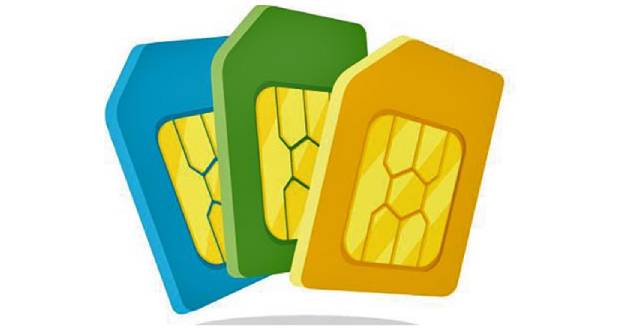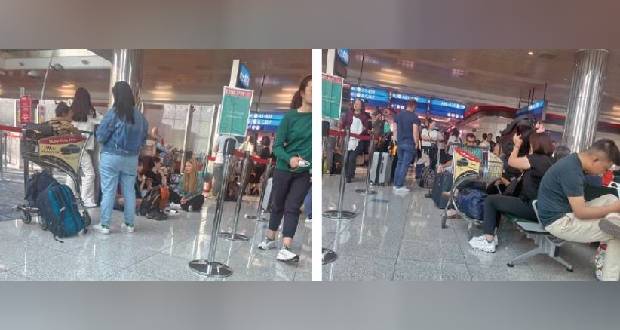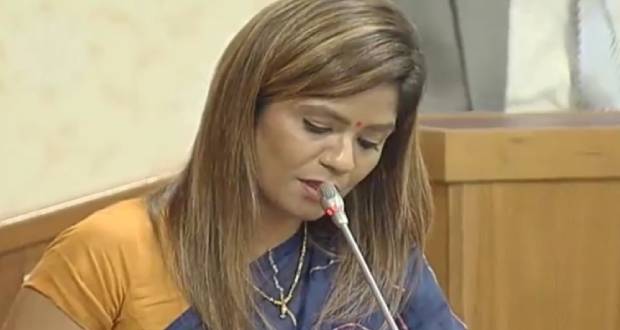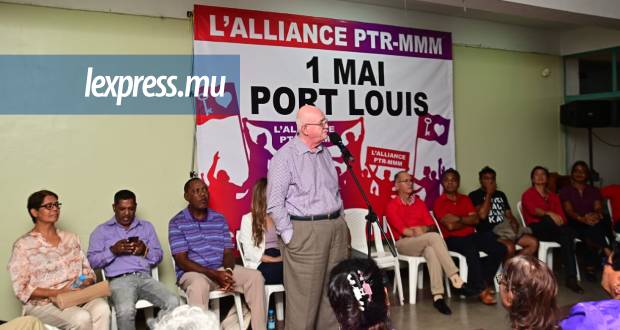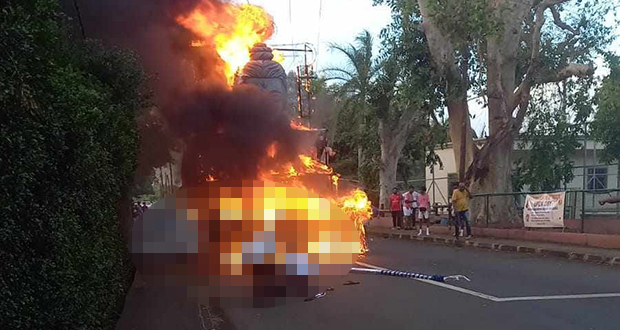Publicité
What Mauritius should expect from the new government of Liz Truss
Par
Partager cet article
What Mauritius should expect from the new government of Liz Truss
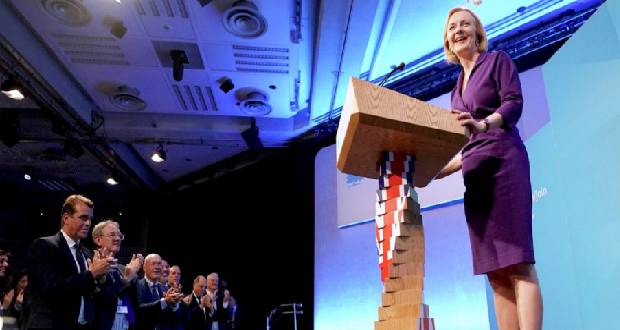
Liz Truss has become the new prime minister of the United Kingdom, replacing Boris Johnson. What can Mauritius expect from her new government, and why is it even less likely to reach a deal with Mauritius over the Chagos.
1.Trade breakthroughs
This week Liz Truss beat out her rival Rishi Sunak in an inner-party election within the ruling Conservative Party to become the latest United Kingdom (UK) prime minister, replacing Boris Johnson. Former Foreign Secretary Truss obtained 81,326 votes from party members as opposed to former Chancellor Sunak who trailed at 60,399. The new Truss administration, however, is unlikely to bring much change to ties between the UK and Mauritius.
Although she has championed the notion of a ‘New Commonwealth Deal’ to sign bilateral trade agreements with Commonwealth states – which would include Mauritius – in practice, this has simply meant the UK signing trade deals with other states essentially keeping in place the same kinds of trade terms that London enjoyed with those countries when it was part of the European Union. “I expect trade between the UK and Mauritius to go on as it has been,” says Vijay Makhan, former foreign secretary of Mauritius and ex-deputy secretary general of the African Union (AU), “as it will be for the rest of the world, except for trade with the EU which would involve things like the Northern Ireland question which would be a different kettle of fish”.
A new post-Brexit trade arrangement that has come into effect since January 2021 has significantly complicated trade between Northern Ireland and the UK mainland, souring relations between the UK and the EU further. “Her priority will be to handle the internal turmoil within the UK right now,” Makhan adds, “these are the things that will be on her plate.” Truss is inheriting an economy reeling from steep rises in energy and food prices, with the Bank of England predicting an economic recession and 13 per cent inflation by the end of the year.
Nor is Port Louis expecting a major trade breakthrough with the UK. London remains a major tourism and export market, however most of the growth in Mauritian trade is now coming from the East: the government’s interministerial committee on monitoring and implementation of free trade agreements states that, since signing trade pacts with China and India, Mauritian exports to those states have jumped by 148 per cent and 60 per cent respectively.
2.The Chagos dilemma
Nor is a new Truss government likely to upend traditional UK foreign policy and reach a deal with Mauritius over the Chagos. This is due to a combination of factors: the first is the traditional view of the UK foreign policy establishment. London has long ignored censures from international courts and the UN, insisting that it is sovereign over the Chagos archipelago, which is home to the US base on Diego Garcia. “While a government can come up with broad policy, the details are handled by the mandarins at the foreign office. Not much will change on that front, the UK will continue to stick to their position in defiance of international law,” argues Makhan. “The fear”, posits Milan Meetarbhan, Mauritius’ former UN permanent representative, “is that they are concerned about the implications that giving up the Chagos can have on other disputed islands held by the UK such as Las Malvinas (The Falklands -ed) claimed by Argentina or Gibraltar claimed by Spain.”
The second factor that makes a deal with London under Truss unlikely is that the US has little reason to push for it: the UK is a key intelligence gathering partner in the five-eyes partnership alongside the US, Australia, Canada and New Zealand. The UK is a close ally that backs US operations out of Diego Garcia, while the US does not have to worry about escalating rental claims, while London also keeps Diego Garcia shielded from the application of numerous international treaties such as the anti-nuclear Pelindaba Treaty, the 1966 International Covenant on Economic, Social and Cultural Rights, the 1966 International Covenant on Civil and Political Rights or the 1984 Convention against Torture, just to name a few.
For Mauritius, this has meant that not only does it lose out on potential revenue by renting out Diego Garcia (or from exercising its fishing rights in the waters of the Chagos) but this has also stalled progress on signing a bilateral deal with the US essentially over the definition of Mauritian territory: the US would like to keep Chagos and products originating from it out of the treaty, while Port Louis insists it should be there. “Frankly, this is not something that just a change in the head of government in the UK can change,” says Meetarbhan, “this can only be done through other avenues, such as increasing the international pressure.”
The strategic imperative post-Brexit
Aside from these wider reasons for the UK to refuse to come to a deal with Mauritius, the end of the UK’s 47-year membership in the EU in January 2020 has just added to London’s intransigence over the Chagos question. In fact, one of the key arguments before the 2016 referendum that led to Brexit was that leaving the EU would leave London free to further deepen its ‘special relationship’ with Washington D.C. Since Brexit, London’s strategic reliance on its bilateral relationship with the US has only deepened, with London eager to clinch a free trade deal with the US as evidence that it made the right move by exiting the EU.
Although the UK and the US pursued five rounds of trade talks in 2020, with Joe Biden becoming US president, those talks have stalled over the Biden administration’s concerns with what happens in Northern Ireland as well as more mundane questions such as food safety regulations and opening the UK’s market to US pharmaceutical products. Instead in May this year, London has had to settle for signing trade deals with individual US states such as Indiana, with plans to sign similar trade deals with 20 other US states. “One of the major considerations for the UK after Brexit has been to ensure that it has other trade agreements,” says Meetarbhan. Particularly as the UK’s trade with the EU has slowed down since Brexit.
But getting such concessions from the US means that the UK has to ensure that its strategic importance in Washington’s eyes does not dim. And the Chagos forms a key part of that. In March 2021, the UK released its Integrated Review of Security, Defence, Development and Foreign Policy becoming the fourth European state to announce an Indo-Pacific strategy, which centres on the UK’s residual presence in the Chagos. For London, the Chagos allows it to boast of its importance to the US in terms of hosting US military facilities: a major chunk of the 9,300 US military personnel stationed on UK territory is actually on Diego Garcia (in 2016, the UK renewed its agreement to host the US base there until 2036) as well as its continuing strategic importance to wider US global strategy. And given that the US is increasingly shifting focus to containing China in what it terms to be the ‘Indo-Pacific’, London relinquishing the islands to Mauritius means that when it comes to countering China in the Indian Ocean region, it risks being overshadowed by others such as France and India which do maintain a presence in the region.
3.The new PM’s views
If the Chagos has become even more important to the UK to prove its strategic usefulness to the US – and allowing London to continue to punch above its weight post-Brexit – this is a logic that Liz Truss’ own political views have wholeheartedly adopted. When Truss was made foreign secretary by Boris Johnson in a cabinet reshuffle on September 15, 2021, her elevation to the new position saw London only double down on its position on the Chagos, ignoring a decision by the UN’s International Tribunal for the Law of the Sea earlier that year that, while mediating a boundary dispute between Mauritius and Maldives, rejected the notion that the UK had any sovereignty claim over the Chagos. And as foreign secretary, she championed the foreign policy of Boris Johnson that took a more hawkish view of Russia and China, including becoming part of the AUKUS group. “As foreign secretary, Truss would have been aware of the mounting international pressure on the Chagos” says Meetarbhan.
But while campaigning to replace Boris Johnson as prime minister, Truss has only deepened her rhetoric including recognizing China’s treatment of its Uighur population as genocide, updating the UK’s foreign policy strategy to increase focus on Russia and China as strategic threats to the UK, boosting spending on defence, turning the G7 into an “economic NATO” to counter Chinese economic competition, forming a “network of liberty” of liberal democracies against China and Russia as well as support to Ukraine and Taiwan. “In part these hawkish positions are designed to satisfy her own constituents within the Conservative Party,” says Makhan.
The Conservative Party in the UK has swung sharply from the days of former prime minister David Cameron who in 2015 wanted the UK to become “Beijing’s closest friend in the West”, to becoming hostile to Beijing. “But these statements are also an indication of the line she is likely to take in terms of foreign policy,” Makhan adds. What this means for Mauritius is that with such hawkish global ambitions – and with the UK increasingly stuck to the US at the hip when it comes to global geopolitics – a new Truss government would see even less reason to come to a deal with Mauritius, and even more motivation to simply ignore the UN and international law.
Nor is Truss in a position, domestically speaking, to take as bold a step as finally resolving this bilateral dispute with Mauritius. For one thing, Truss has not come to power via a national election, but rather picked by the 160,000-strong Conservative Party membership. “That’s just 0.3 per cent of the British voting public. That’s not a comfortable position to be in,” insists Makhan. Keeping her party happy – particularly by following the pendulum swing within the Conservative Party on China and Russia – is important, particularly in view of the fact that two of her immediate predecessors Theresa May and Boris Johnson were brought down by revolts within the Conservative Party. “She will want to retain support within her party,” says Meetarbhan, “particularly since she is being criticised over some of the appointments she has made since becoming PM as well as the fact that many senior conservative party members will now be sitting as backbenchers. That will be an issue for her.”
With the next general elections in the UK scheduled for January 2025 at latest, Truss has little time to shore up her own support base within the party, meaning that this won’t be the time for bold moves. Particularly ones that London sees would dimmish its own post-imperial image and its sense of its own strategic importance. Here’s Makhan: “She would not want to rock the boat right now.” If Port Louis is expecting to come to a deal with the new Truss government over the Chagos, it looks even more unlikely than usual that it will get it.


